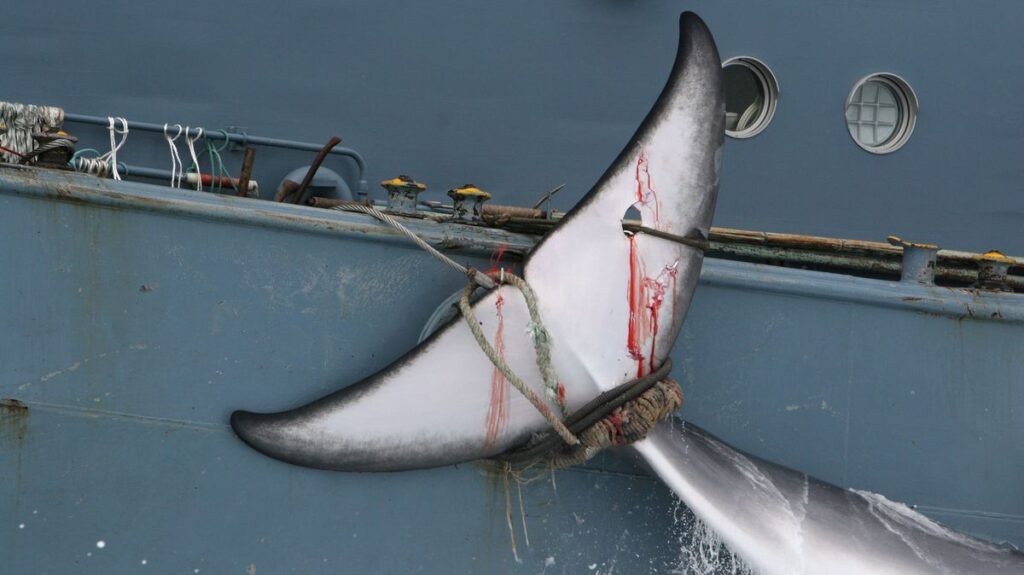A Japanese company is building a new whaling ship designed to travel as far as Antarctica, sparking fears commercial operations could resume in the Southern Ocean.
Australia’s environment minister, Tanya Plibsersek, reaffirmed the Albanese government’s commitment to a global moratorium on commercial whaling, while Greenpeace condemned the practice as “brutal and unnecessary”.
Kyodo Senpaku Kaisha announced it was building a new “mother ship” that can sail for 60 days and travel 13,000km.
The term “mother-ship method” refers to a process in which smaller, more agile vessels are used to hunt whales, before the carcasses are returned to the mother ship for freezing and storage.
the
company’s president, Hideki Tokoro, told reporters the ship was intended to pass on “whaling culture”.
“We want to contribute to Japan’s food security,” he said. “We designed the ship to be able to travel as far as the Antarctic Ocean, in the hope it will be useful in times of food crisis.
“Unless a new mother ship is built, we cannot pass on our whaling culture to the next generation.”
Plibersek said the government was aware of reports of the new whaling vessel, but that Japanese government had provided assurances it “has not provided financial support for the ship”.
“I am strongly opposed to whaling,” Plibersek said. “The Australian government is committed to upholding the global moratorium on commercial whaling and preventing a return to Southern Ocean whaling.”
A senior campaigner at Greenpeace Australia Pacific, Richard George, said whales and their habitats are already threatened.
“Whales in the waters surrounding Australia and Antarctica are under threat from a number of fronts – from destructive offshore gas and oil drilling, through to deep sea mining and climate change that is threatening their fragile ocean environments,” he said.
“We simply can’t afford to have a whaling super-ship hunting whales in southern waters. Commercial whaling is brutal and unnecessary and there is no place for it.”
The ship will only be able to operate within Japan’s exclusive economic zone, and there is little expectation that will change.
The UN convention on the law of the sea grants nations significant discretion over the management and exploitation of living resources in their exclusive economic zones.
Commercial whaling was banned under an International Whaling Commission moratorium in 1986 but with a clause that allowed Japan to continue to hunt whales legally in the Southern Ocean for what it claims to be “scientific research”.
The international court of justice ordered Japan to end its annual hunt in 2014, which it did after pulling out of the IWC in 2019.
At the time of its withdrawal, the Japanese government announced that it would limit its commercial whaling to within its own waters.
source: theguardian


